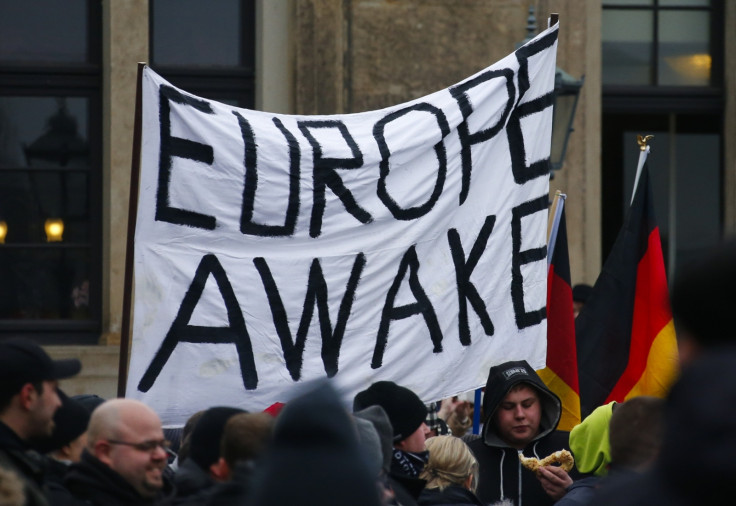From Pegida to Syriza: The rise of radical Europe
Thousands of people have been protesting in Germany every week as right-wing group Pegida takes to the streets. The Greek elections in January saw the radical leftist Syriza party elected into government. And in Spain, new left-wing party Podemos currently ranks second in the polls. Elsewhere, Ukip, Afd, the Five Star Movement, Golden Dawn, The Danish People's Party and Jobbik are just a few of the parties which have seen a sudden rise in popularity since the beginning of the financial crisis in Europe.
Roman Gerodimos, founder of the Greek Politics Specialist Group, says that despite huge differences between individual parties and movements they have all gained support for similar reasons. "People [...] are angry because of their current situation or be it the perceived situation of the European Union and they want to send a message to those who are in power," he said.
However, while it seems that people everywhere in Europe are looking for alternatives to traditional politics, there are also noticeable regional differences, as Dr Sean Hanley, Senior Lecturer at the UCL School of Slavonic and East European Studies explains.
"In Northern Europe, Western Europe it tends to be parties of the radical right, the far-right who have made the running electorally. In Southern Europe, in Portugal, Greece, Spain it's the radical left which has emerged. In Central and Eastern Europe it's neither the radical left nor the radical right but a new species of anti-political parties," he said.
But while anti-establishment parties are a phenomenon throughout Europe, Western Europe in particular has seen xenophobia and anti-Muslim sentiment promoted by right-wing parties and far right groups. These movements have benefited from the dissatisfaction with mainstream parties, but they were also helped by the fact that the right-wing parties of today are very different to those of previous decades.

Jim Wolfreys, Senior Lecturer for contemporary French politics at King's College London uses the example of the Front National to explain how far right parties manage to be accepted by the electorate. "The founders of [the Front National] consciously attempted to mask direct affiliation of fascism behind a language and an appearance that courted respectability," he said.
Wolfreys warns that far right parties are contributing to 'an atmosphere of intolerance and scapegoating', while Gerodimos thinks it dangerous that parties increasingly question the foundation of the European Union.
"The European Union is facing huge pressures and challenges. There's questions about immigration and security and also economic issues, issues of security and foreign policy and so on. I think introducing an instability factor and questioning the foundation of the structure would be very dangerous," he said.
People [...] are angry because of their current situation or be it the perceived situation of the European Union and they want to send a message to those who are in power.
Hanley on the other hand suggests that many mainstream parties are 'tough animals' and while he sees the rise of anti-establishment parties as a long term trend he believes that many of these parties will become more moderate and accepted within traditional politics.
"It's much more about shifting and fluid alliances between parties that might represent different classes, different ethnic groups different regions put together in a kind of pragmatic and fluid way so the nature of what a political party is shifting," he said.
So anti-establishment parties pose challenges but also opportunities for Europe's political system. With Pegida struggling to find a new committee, Syriza winning the Greek elections and Ukip and Podemos preparing for upcoming elections, it remains to be seen what the outcome will be for each individual country.
© Copyright IBTimes 2025. All rights reserved.






















